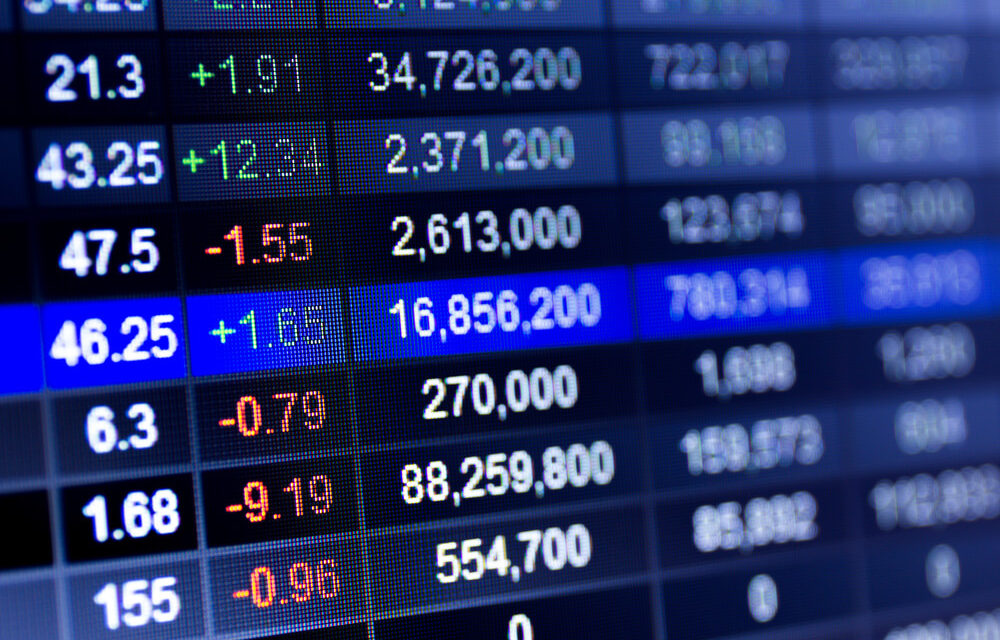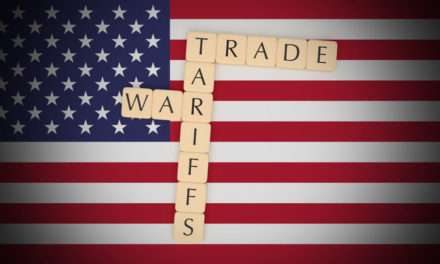U.S. stocks are rising Tuesday as technology companies and retailers rebound from their recent losses. Insurance companies are mixed as Hurricane Florence moves toward the East Coast, but home improvement retailers are rising. Energy companies are climbing along with oil prices.
KEEPING SCORE: The S&P 500 index rose 11 points, or 0.4 percent, to 2,888 at closing time. The Dow Jones Industrial Average gained 114 points, or 0.4 percent, to 25,971. The Nasdaq composite added 48 points, or 0.6 percent, to 7,972. The Russell 2000 index of smaller and more U.S.-focused companies inched up 1 point, or 0.1 percent, to 1,719.
STORM WARNING: Hurricane Florence remained an extremely dangerous major hurricane with winds of 130 miles an hour on Tuesday, and it’s expected to get stronger as it closes in on the Carolinas Thursday.
While people on the East Coast hunker down in advance of the storm’s arrival, investors are concerned that insurance companies might have to pay for widespread damages. On Tuesday MetLife slipped 0.8 percent to $45.24 and AIG shed 0.7 percent to $52.37.
Morgan Stanley analyst Kai Pan said Allstate, Berkshire Hathaway and Travelers are some of the largest catastrophe insurers in the Carolinas and Virginia, while the largest property and casualty reinsurers include Axis Capital, Everest Re and RenaissanceRe.
Each of those stocks inched higher Tuesday, but they have fallen between 3 and 5 percent over the last week. Meanwhile home improvement retailers climbed again as Wall Street bet on a bump in sales from repairs after the storm passes. Home Depot gained 1.6 percent to $214.11.
GAINS FOR TECH: For the second day in a row, technology companies ticked higher after steep losses last week. Apple jumped 2.3 percent to $223.25, reversing a loss Monday. The iPhone maker is expected to announce new phone designs on Wednesday.
Facebook rose 1.1 percent to $165.92, and Microsoft picked up 1.8 percent to $111.34. Big technology companies slumped last week as executives from Facebook and Twitter appeared before Congress at hearings about election meddling and political bias. That led to a rare decline for the sector.
THE QUOTE: Brad McMillan, chief investment officer for Commonwealth Financial Network, said that when investors’ confidence in the technology sector wavers, it tends to come back quickly because the companies are so profitable: Google and Facebook are free to use and new users don’t cost the companies anything.
“There’s no way smaller companies can compete,” he said, although that comes with risks. “When a company gets successful beyond a certain level it does draw government attention.”
TRADE WINDS: The World Trade Organization says it will review China’s request to be allowed to impose sanctions on the U.S. for failing to abide by WTO rules. The dispute is linked steps the U.S. took in 2013 over Chinese goods that it said were “dumped,” or sold for less than market value.
Separately, the Trump administration is due to announce a decision shortly on whether to go ahead with 25 percent tariffs on $200 billion of Chinese imports in a dispute over Beijing’s technology policy. The two sides already have raised duties on $50 billion of each other’s goods.
The proposed sanctions have had little effect on the market recently, as industrial companies are the best-performing part of the S&P 500 in the last month even though investors feel a trade war leaves them vulnerable to higher costs and reduced sales.
SOUNDS BAD: Wireless speaker maker Sonos plunged 21.4 percent to $16.69 after its first earnings report as a publicly traded company. The company went public in early August with an offering that priced at $15 a share and it had climbed to $21.24 at Monday’s close.
DEAL NEWS: Chipmaker Integrated Device Technology soared after it agreed to be bought by Renesas Electronics of China for $49 a share, or $6.34 billion. IDT climbed 10.9 percent to $46.67.
Yum China Holdings dropped 12.7 percent to $32.17 after Bloomberg News reported that a Chinese consortium has decided to end its effort to buy the fast food company.
ENERGY: Benchmark U.S. crude jumped 2.5 percent to $69.25 per barrel in New York. Brent crude, used to price international oils, climbed 2 percent to $78.89 a barrel in London.
Wholesale gasoline rallied 2.8 percent to $2.01 a gallon. Heating oil gained 1.5 percent to $2.25 a gallon. Natural gas added 0.9 percent to $2.83 per 1,000 cubic feet.
OVERSEAS: Germany’s DAX and London’s FTSE 100 both fell 0.1 percent. The French CAC 40 added 0.3 percent.
Hong Kong’s Hang Seng lost 0.7 percent and officially entered a bear market, having fallen 20.3 percent from its recent peak reached Jan. 26. Tokyo’s Nikkei 225 rose 1.3 percent while Seoul’s Kospi fell 0.2 percent.
METALS: Gold rose 0.2 percent to $1,202.20 an ounce. Silver fell 0.2 percent to $14.15 an ounce. Copper slipped 0.2 percent to $2.62 a pound.
BONDS: Bond prices fell. The yield on the 10-year Treasury note rose to 2.98 percent from 2.94 percent.
CURRENCY: The dollar rose to 111.55 yen from 111.21 yen. The euro dipped to $1.1585 from $1.1597.
© The Associated Press. All rights reserved.




